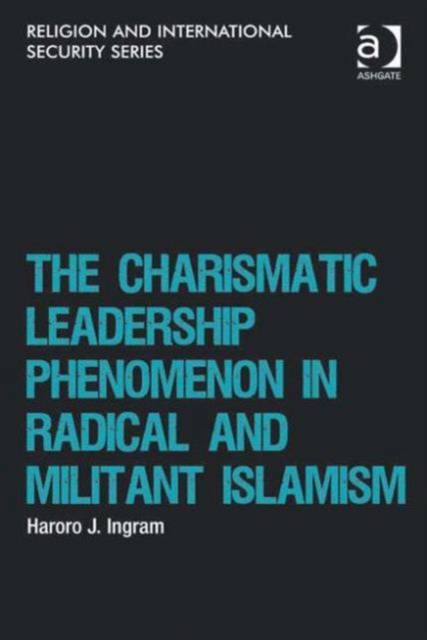
- Afhalen na 1 uur in een winkel met voorraad
- Gratis thuislevering in België vanaf € 30
- Ruim aanbod met 7 miljoen producten
- Afhalen na 1 uur in een winkel met voorraad
- Gratis thuislevering in België vanaf € 30
- Ruim aanbod met 7 miljoen producten
Zoeken
The Charismatic Leadership Phenomenon in Radical and Militant Islamism
Haroro J Ingram
€ 195,95
+ 391 punten
Omschrijving
Haroro J. Ingram journeys through over a century of history, from the Islamist modernists of the late-1800s into the 21st century, in the first full length examination of the charismatic leadership phenomenon in Islamist radicalism and militancy. Exhaustively researched and founded upon a suite of innovative multidisciplinary paradigms, this book features case studies of Hassan al-Banna, Sayyid Qutb, Abdullah Azzam, Osama Bin Laden and Anwar al-Awlaki. At a micro-level, Ingram argues that charismatic leaders act as vehicles for the evolution of modern Islamist radicalism and militancy. At a macro-level, he argues that the transformative charisma phenomenon in Islamist radicalism and militancy produces complex chains of charismatic leaders as individual figures rise by leveraging, to varying degrees, the charismatic capital of preceding charismatic leaders. Within these case studies, Ingram offers new approaches to understanding the nuances of these complex phenomena; from his ideal-types of charismatic leadership in Islamist militancy (spiritual guides, charismatic leaders and neo-charismatic leaders) to his framing of al-Qaeda as a 'charismatic adhocracy'. The result is an authoritative analysis of a phenomenon largely ignored by scholars of both charismatic leadership and Islamism. Ultimately, this ground-breaking investigation offers important insights into the complex nuances that drive the rise and evolution of not only Islamist militancy but radical and militant groups more broadly.
Specificaties
Betrokkenen
- Auteur(s):
- Uitgeverij:
Inhoud
- Aantal bladzijden:
- 262
- Taal:
- Engels
- Reeks:
Eigenschappen
- Productcode (EAN):
- 9781409449843
- Verschijningsdatum:
- 11/12/2013
- Uitvoering:
- Hardcover
- Formaat:
- Genaaid
- Afmetingen:
- 156 mm x 233 mm
- Gewicht:
- 639 g

Alleen bij Standaard Boekhandel
+ 391 punten op je klantenkaart van Standaard Boekhandel
Beoordelingen
We publiceren alleen reviews die voldoen aan de voorwaarden voor reviews. Bekijk onze voorwaarden voor reviews.











